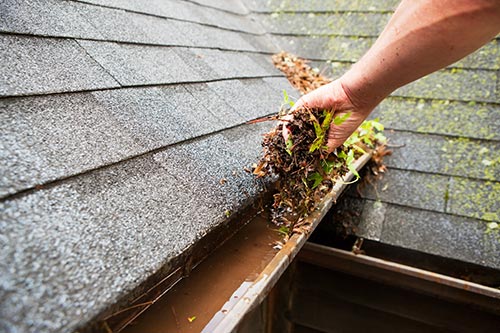Like any other home, your high value property needs a little TLC to keep it happy, healthy, and in great marketable condition.
If you live in a listed property, double-check before making changes. Then triple-check it, because having to undo repair work and replace it hurts.
Depending on the age and type of building and what repairs are needed, you may need a specialist team. This is worth the investment because shoddy workmanship can cause even more damage.
From top to bottom, here’s part 1 of the top 8 things you can do to keep your property looking magazine-ready.
1. Chim-chimney
There are few things more disheartening that viewing a stunning property with a large tree sprouting from the chimney pot. It means that the either the owner hasn’t being paying attention, or hasn’t had the funding to address it.
Either way, and depending on the size of the tree, the odds are high that there is structural damage to the chimney, depending on where the tree has rooted.
Trees in or around a chimney are a fire hazard, and so are animal nests. Dropped leaves, twigs and needles can become lodged in the chimney itself and starting a fire in winter can result in noxious smoke filling the house. It’s good practice to have your chimney swept twice a year if you burn wood, and annually if you burn smokeless fuels.
Moss and lichen can also damage the chimney’s structural integrity. A good pressure washer will take care of them, and once removed, check carefully for cracks and damage to the brick.
Repoint your chimney if needed. Chimney repointing usually only needs to be done every thirty years or so, so it’s likely to happen once or twice at most during your ownership of the property.
2. Roof-top Boogie
A good roof finishes the overall appearance of your house. It also protects you and your possessions from the elements.
Loose and damaged tiles mean floods and water damage, as well as ingress points for wildlife. (Anyone who has had to call in pest services for a fox or squirrels in the loft insulation will be nodding frantically at this point).
While a lot of wildlife like squirrels will simply chew a hole in the soffit, missing tiles makes it a whole lot easier for you to end up with your own very British version of the ark in your loft space.
If you have a thatched roof, keep in mind it needs replacing every 10 to 15 years. Circle the date on your calendar and get the experts in for this job. Thatching is a learned skill, and you don’t want someone who doesn’t know what they’re doing with it.

3. Live from the Gutter
Have your gutters cleaned regularly and replace or repair any damage.
A good sign of a gutter that hasn’t been cleaned regularly is our old friend, the happily growing tree.
Gutters that are packed with moss, trees, leaves and other debris will start to overflow, and at some point, the weight can cause the gutter to collapse.
If your gutters are sagging and drooping, they may simply need a good tightening up.
If your gutters are neglected, they can cause anything from rotten eaves to erosion of the structural support. It’s a relatively easy fix to avoid a lot of pain down the road.
4. These Walls
Everyone loves the look of ivy on a building. The question is whether it can cause damage to the house. Like so many other things, the answer is: it depends.
Avoid ivy and other climbing plants on older buildings. The mortar used made with limestone will be damaged by the plant. Any cracks or chinks in the brickwork will be used by the plant and can cause damage. It can also really hinder maintenance and hid potential issues that need repair.
Sound masonry will usually be unaffected, and there are a few arguments for letting the plant thrive: ivy can help to insulate the property and provide a haven for small wildlife. (This last may be a drawback, depending on your fondness for spiders).
To remove ivy, cut it at the root and wait for plant to die; pulling live plants off can damage the building. Be prepared for a lot of marks on the wall from where the ivy snuggled in, and some damage to the finish if your house was rendered or stuccoed.
If you have a painted exterior, make sure you paint or lime-wash your house on a steady schedule, before peeling and marking get too bad. Lime washing is cost-friendly way to get a brilliant white finish on your walls.
5. World Outside Your Window
Windows do a lot more than give you a view of the neighbourhood. They aid airflow, provide natural light, and can give small rooms the illusion of looking larger.
Because each window is technically a breach in your exterior wall, maintaining them is imperative.
Keep your windowsills in good condition. If you have wooden frames, they’ll need oiling and sealing regularly. Any peeling paint needs to be scraped off and repainted. If you have metallic windowsills, they should be inspected for rust and defects, especially if you live in a coastal area. Salt air calls anything metallic tasty and comes back for more.
With new style PVC frames, check for warping and make sure the window still open and closes easily.
If you find any cracks in the glass, fix them as soon as possible. Cracks in glass travel, and a damaged window can impact your energy bills.
Where possible, try and ensure you have double-glazing on all exterior windows. It makes heating your house a lot easier.
If you have traditional stained-glass inserts, check the lead seal for damage, signs of degrading and cracks. It’s a lot easier to fix in the beginning stages than when you’re running the risk of glass dropping out of the lead.

6. Knocking on Heaven’s Door
Your front door welcomes visitors and sets the tone for the rest of your house. A great front door combines style, functionality and beauty, so looking after it is high on the Must-Do list.
If your door is good quality solid wood, it should be oiled, sealed and varnished on installation, with regular touch ups as needed.
A painted wooden door will fade and peel with exposure to the elements. When you notice paint bubbling or peeling, it’s time to strip the paint off and redo it.
Glass panelled doors should be checked for warping and cracks in the glass, with regular inspections of the sealed edged around the glass.
PVC doors are pretty sturdy, but can still crack if knocked, especially in the winter. You can also use a pressure washer on them to clean off dirt and grime, unlike the others where a washer can strip the finish or paint.
7. In the Garden
When people talk about curb appeal adding value, a large part of that is your garden.
A healthy, well-maintained garden brightens up a property and adds depth and dimension to the front of the house, and the perfect relaxation area at the rear.
If you add decking, you’ll want to invest in a good cleaner and clear away any moss that appears. As soon as decking moss gets wet, it gets exceedingly slippery, so this is a safety measure as well as aesthetic. Once again, a pressure washer will do wonders to remove dirt build up and moss – but be careful not to strip the sealant.
You can choose a theme for your garden, divide it into areas, or simply go for raised beds and window boxes.
If you don’t have a green thumb, a landscaping and gardening service is an excellent investment.
8. Driveway Blues
Last but not least, don’t forget to maintain your driveway.
Clear any weeds as soon as they appear – letting them get out of hand can result in a cracked, uneven surface that can eventually damage your vehicles.
Remember: the pressure washer is your friend. Sand, soil, leaves and moss are easily taken care of with a high-pressure washer.
If your driveway is paved, check regularly for cracked, uneven or loose bricks, and replace or repair them as needed.
If you’ve opted for gravel, keep it weed free and ensure the gravel spread is even.
A tarmac driveway needs regular inspections for cracking and sinking spots, and if you have thinning areas – especially where weeds are trying to take root – it’s time to look into resurfacing your driveway.
And finally - don't forget your home insurance
Don’t forget to check your high value property insurance for any specific requirements before starting any repair work and double-check the allowances if you’re in a listed building.
Need a good high value home insurance broker? We’ve got you covered – click here to fill out a short form and we’ll pass your details onto our list of brokers.